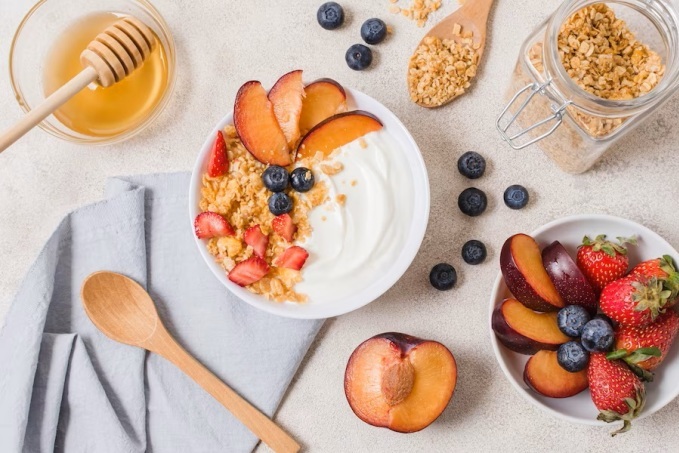Fruit is an extremely healthy food with great benefits. They have many effects such as reducing the risk of cardiovascular disease, providing many nutrients, and helping to increase resistance. However, eating too much fruit will also have consequences.
According to nutritionist Erin Palinski-Wade, author of the book The Two-Day Diabetes Diet , people with diabetes or prediabetes need to be cautious with naturally sweet foods like fruit. due to high sugar content.
Palinski-Wade recommends eating a serving of fruit with every meal or snack, and pairing it with a source of protein, fiber or fat.
"While a diet rich in whole foods has been shown to reduce the risk of developing type 2 diabetes, most fruit is a source of carbohydrates so balance is key," the expert said.
Apples, berries, citrus and other fruits provide natural hydration and lots of important nutrients. But if you eat too much to the exclusion of other food groups, you could get into trouble.
Dietitian Amanda Lane, founder of Healthful Lane Nutrition, explains: "Consuming a lot of fruit can cause you to eat less of other foods like healthy fats and protein. Without these important nutrients, This can lead to harmful effects on the body.
Additionally, for those who are concerned about weight loss, you must limit the amount of fruit you eat daily to control your weight.
"Eating too much fruit at once can increase your blood sugar, making you crave more," says nutritionist Bonnie Newlin.
Yogurt combined with fruit. Photo: Freepik
Yogurt combined with fruit. Photo: Freepik
Other health problems may also prevent you from eating more fruit at breakfast, lunch and dinner, especially for people with gastrointestinal problems.
"Foods high in fiber can be difficult to digest or cause discomfort such as gas and bloating. Because food intolerance with conditions such as IBS (irritable bowel syndrome) or IBD (inflammatory bowel disease) carries highly individual, it's best to work with a health care professional to determine which fruits are best tolerated and which fruits you need to limit your intake of," Palinski-Wade explains.
Although fruits contain a lot of sugar, they are natural sugars, which have different effects than artificial sugars. The body reacts differently to added sugars than it does natural sugars. Accordingly, the natural sugars present in fruits are introduced into your bloodstream due to the presence of nutrients such as fiber and polyphenols. The body has to break down these nutrients, which means sugar is absorbed more slowly, causing less of a spike in blood sugar. Palinski-Wade also agrees that the vitamins, minerals and fiber in fruit help balance out the potential downside of sugar content.
Fruit is a healthy choice in meals and snacks, but you shouldn't aim to make your menu entirely fruit-based. "Four to five servings of fruit is an acceptable amount," Lane says, adding that while it's good to eat a variety of fruits, you should always try for moderation and variety in your meals.
"Make sure you consume adequate amounts of vegetables, legumes, whole grains, and plant or animal protein as part of a balanced diet," advises Lane.
Source (According to Eat This Not That)
Maybe you are interested:

22 Children fell ill from Using Lead-contaminated fruit Puree in the US

Cabbage helps lose weight and boost immunity





